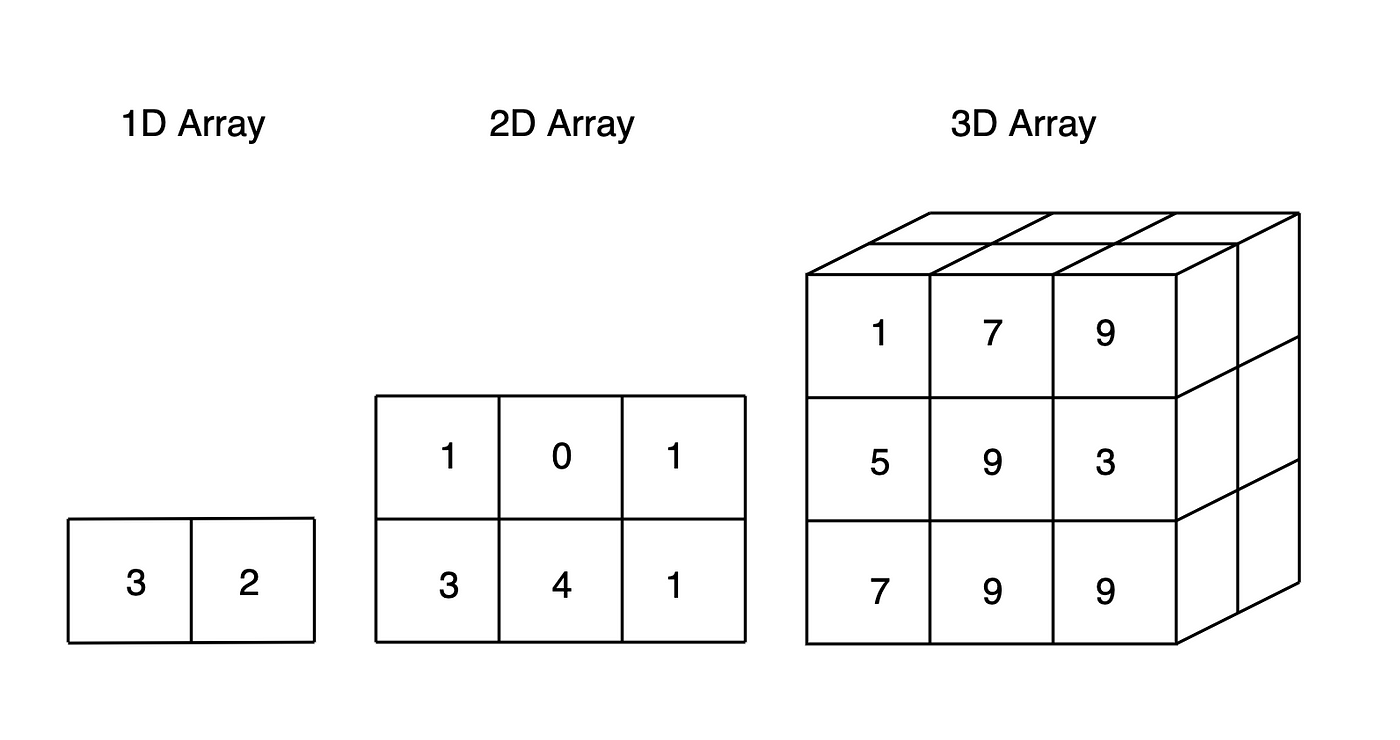Arrays in C Programming

Title: Exploring Arrays in C Programming: A Comprehensive Guide
Introduction:
Arrays are fundamental data structures in programming, allowing us to store multiple elements of the same data type under one variable name. In C programming, arrays play a crucial role in handling collections of data efficiently. In this guide, we'll delve into the basics of arrays in C, their syntax, usage, and some common operations.
What is an Array?
An array in C is a collection of elements of the same data type stored in contiguous memory locations. Each element in the array is accessed by its index, starting from 0 for the first element. Arrays provide a convenient way to work with a group of related data items.
Declaring and Initializing Arrays:
In C, arrays are declared using the following syntax:
```c
datatype arrayName[arraySize];
```
Here, `datatype` specifies the type of elements in the array, `arrayName` is the identifier for the array, and `arraySize` indicates the number of elements in the array.
For example:
```c
int numbers[5]; // Declares an array of integers with size 5
```
Arrays can also be initialized at the time of declaration:
```c
int numbers[5] = {1, 2, 3, 4, 5}; // Initializes the array with values
```
Alternatively, you can initialize an array without specifying its size explicitly:
```c
int numbers[] = {1, 2, 3, 4, 5}; // Compiler determines the size based on the number of elements
```
Accessing Array Elements:
Individual elements in an array are accessed using square brackets `[]` with the index of the element:
```c
int value = numbers[2]; // Accesses the third element of the 'numbers' array
```
Arrays in C are zero-indexed, meaning the first element is at index 0, the second at index 1, and so on.
Iterating Through Arrays:
You can iterate through the elements of an array using loops such as `for` or `while`. Here's an example using a `for` loop:
```c
for (int i = 0; i < 5; i++) {
printf("%d ", numbers[i]);
}
```
Common Operations on Arrays:
Arrays support various operations like sorting, searching, and modifying elements. In C, you can use functions from the standard library (`<stdlib.h>` and `<string.h>`) or implement custom algorithms for these operations.
Here's a simple example of sorting an array in ascending order using the `qsort` function from `<stdlib.h>`:
```c
#include <stdio.h>
#include <stdlib.h>
int compare(const void *a, const void *b) {
return (*(int *)a - *(int *)b);
}
int main() {
int numbers[] = {5, 2, 8, 1, 4};
int n = sizeof(numbers) / sizeof(numbers[0]);
qsort(numbers, n, sizeof(int), compare);
for (int i = 0; i < n; i++) {
printf("%d ", numbers[i]);
}
return 0;
}
```
Conclusion:
Arrays are essential for handling collections of data in C programming. Understanding their syntax, initialization, and common operations is crucial for building efficient and reliable programs. With the knowledge gained from this guide, you're well-equipped to leverage arrays effectively in your C projects. Happy coding!